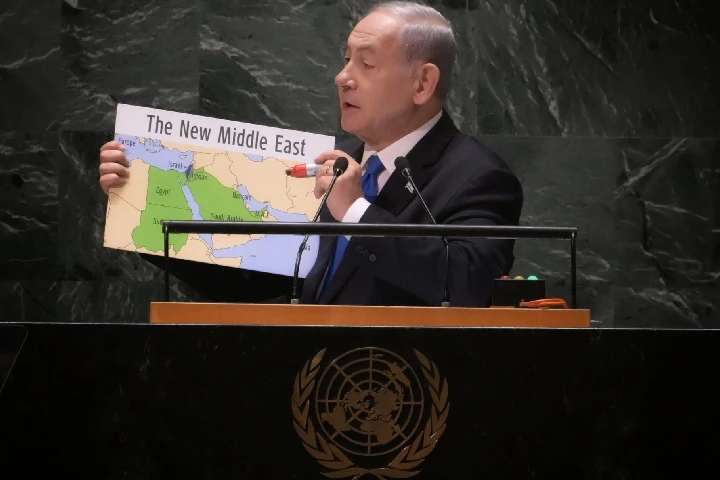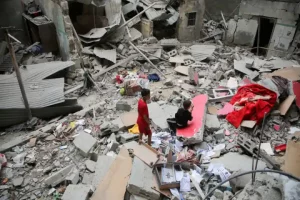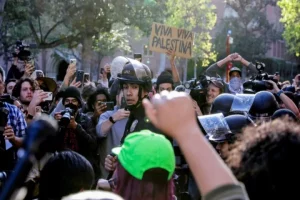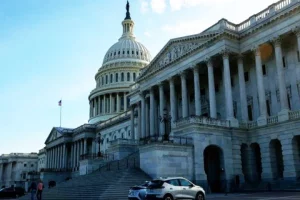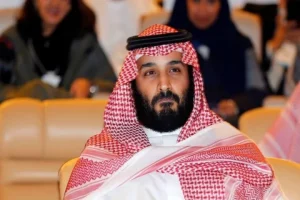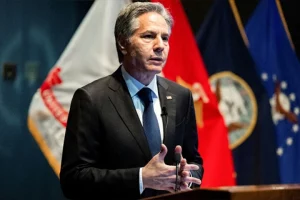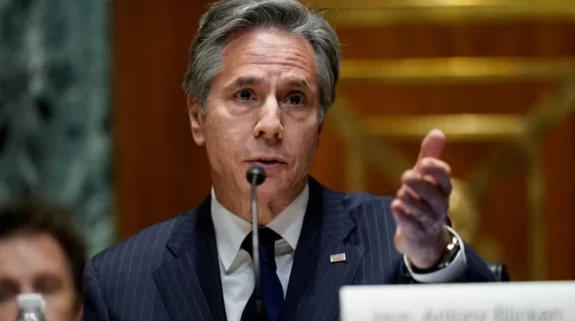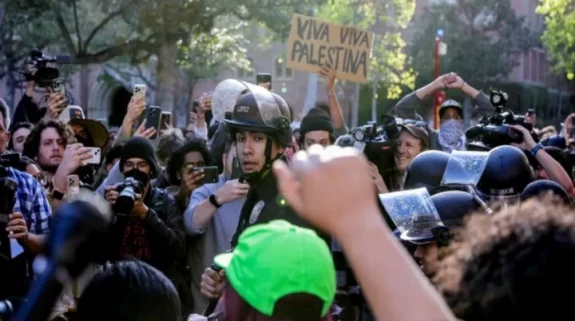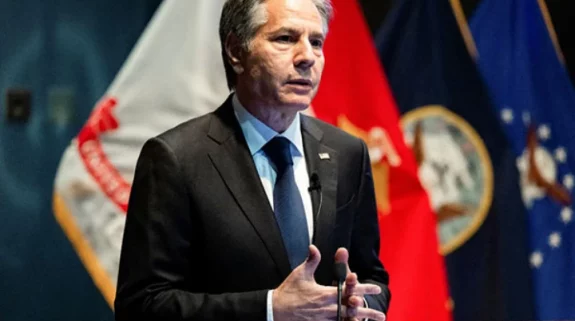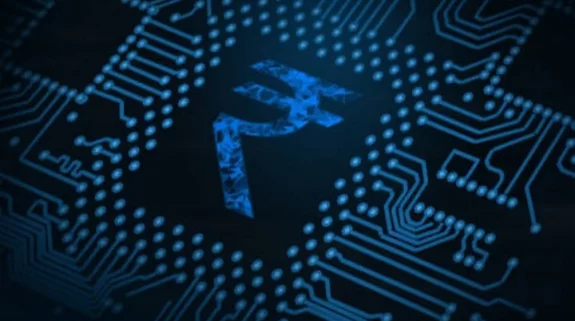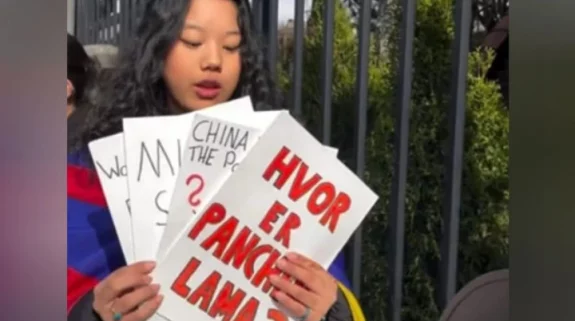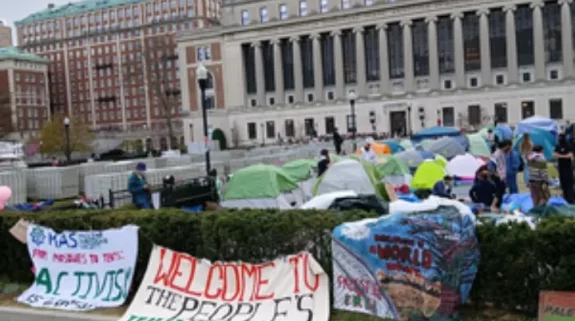Beleaguered Israeli Prime Minister Benjamin Netanyahu, aka Bibi, is overflowing with expectations that Saudi Arabia, the heart of Islam, will reconcile and recognise Israel as other Arab states like UAE and Bahrain have done. The gambit also has a share for US President Joe Biden who is spinning his 2024 reelection hope on scoop in the Middle East. However, the scene in Arab streets and corridors is sceptical, if not in denial mode completely.
Last week, Bibi flaunted a map of the region sans Palestine at the United Nations General Assembly (UNGA) plenum. His map includes all the territory the Palestinians believe should be part of the borders of their future state. This includes the West Bank, Gaza and east Jerusalem.
Netanyahu used the map to illustrate a new era of peace in the Middle East that would include the Palestinians, but his critics said, it will not include Palestine.
השלום, הברכה והקללה.
צפו בנאום המלא של ראש הממשלה בנימין נתניהו באו״ם >> pic.twitter.com/eJCOTer4yD— Benjamin Netanyahu – בנימין נתניהו (@netanyahu) September 22, 2023
“No greater insult to every foundational principle of the UN than seeing Netanyahu display before the UNGA a “map of Israel” that straddles the entire land from the river to the sea,” the Palestinian Authority’s representative to Germany Laith Arafeh posted on X, formerly Twitter.
With this map Netanyahu negates “Palestine and its people” while “attempting to spin the audience with rhetoric about “peace” in the region, all the while entrenching the longest ongoing belligerent occupation in today’s world,” Arafeh said.
Netanyahu held up two maps at the UN during his speech. The first was intended to represent the geography of 1948, showing how Israel was alone in the Middle East and had no allies.
Israel was highlighted in green for effect.
The second map, which portrayed the year 2023 had seven countries in Green, including Israel and Saudi Arabia. It was meant to illustrate how Israel now had friends in the region and how a normalisation deal with Saudi Arabia would expand that.
Netanyahu emphatically said at UNGA that Israel was on “the cusp” of a historic peace agreement with the Saudis.
Taking a leaf out of Bibi’s book, Israeli Foreign Minister Eli Cohen stated on Sunday that “six or seven” Muslim countries could “make peace” with Israel if it signed a peace agreement with Saudi Arabia.
Cohen was quoted by Kan Newsas saying that “peace with Saudi Arabia means peace with the greater Muslim world”.According to the report, Cohen said the countries were in Africa and Asia but declined to name them. He later said that only some had been directly in touch with him.
In his speech at the UNGA, Netanyahu said he believed his country was on the cusp of peace with Saudi Arabia, predicting it could be clinched by Biden and reshape the Middle East.
Yet, amid urging by Riyadh and Washington that the Palestinians be included in the diplomacy, Netanyahu said that Palestinians should not be allowed to veto the regional dealmaking.
Last week, Netanyahu said the ambitious US-backed deal to normalise relations with Saudi Arabia was possible, as he met Biden in New York.
בפגישה חשובה עם נשיא ארה״ב, ידידי ג׳ו ביידן 🇮🇱🇺🇸
(צילום: אבי אוחיון, לע״מ) pic.twitter.com/4gduYUCAd4
— Benjamin Netanyahu – בנימין נתניהו (@netanyahu) September 20, 2023
Are Saudis Willing?
Saudi Arabia has been one of the biggest backers of the Palestinian cause and has repeatedly stated that it needed to see a Palestinian state before taking up normalisation with Israel.
Despite prodding by the US to join the Abraham Accords, the kingdom didn’t join the deal and has pursued a peace plan that was promulgated during King Abdullah in 2004. It conditioned the establishment of Palestinian state with East Jerusalem as its capital as a precursor to recognise Israel and start friendly relations with it.
Arab and African states like the United Arab Emirates, Bahrain and Morocco are parties to the Abraham Accords with Israel.
The reason behind Bibi’s bolstered confidence is that Saudi Crown Prince Mohammed Bin Salman in an interview with Fox News last week said that “negotiations with Israel over rapprochement are not closed and that Saudis and Israelis are closer to it”. However, MBS also said in the same interview that Saudis club issue of Palestinians in the same bracket.
#WATCH: Preview of @FoxNews @BretBaier interview with #SaudiArabia’s Crown Prince Mohammed bin Salman – If #Iran acquires a nuclear weapon, the Kingdom would also need to possess one, he says https://t.co/EB8K980Uqr pic.twitter.com/iMEfwLNIOi
— Arab News (@arabnews) September 20, 2023
Saudi Foreign Minister Prince Faisal bin Farhan echoed this in his speech at the UNGA.
“Security in the Middle East region requires the acceleration of…a just, comprehensive solution to the Palestinian issue; the solution must be based on resolutions in the international arena and must bring about a peace that allows [the] Palestinian people to have an independent state based on the 1967 borders with East Jerusalem as its capital,” he said.
He added that Saudi Arabia also “rejects and condemns all the unilateral steps that constitute a flagrant violation of international law and which contribute to the collapse of regional and international peace efforts and are hindering the path of diplomatic solutions,” an apparent reference to Israeli approval of West Bank settlement construction and the legalisation of some outposts in recent months.
Israel reportedly sent a diplomatic representative to the UN General Assembly hall for the address, even though the speech was during Shabbat. Reciprocally, Saudi Arabia had sent its representative, a female diplomat, to listen to Bibi’s UNGA speech.
It was unprecedented and a new beginning.
Meanwhile, there are also hints that Saudis are making efforts to bring both Israelis and Palestinians on the table for resumption of dialogue.
A Saudi delegation is due to visit Palestinian President Mahmoud Abbas in Ramallah this week, a Palestinian official told Al Arabiya on Monday, to whip up diplomatic efforts.
The delegation will be led by the non-resident Saudi envoy to the Palestinians, who was appointed only last month, the official said.






